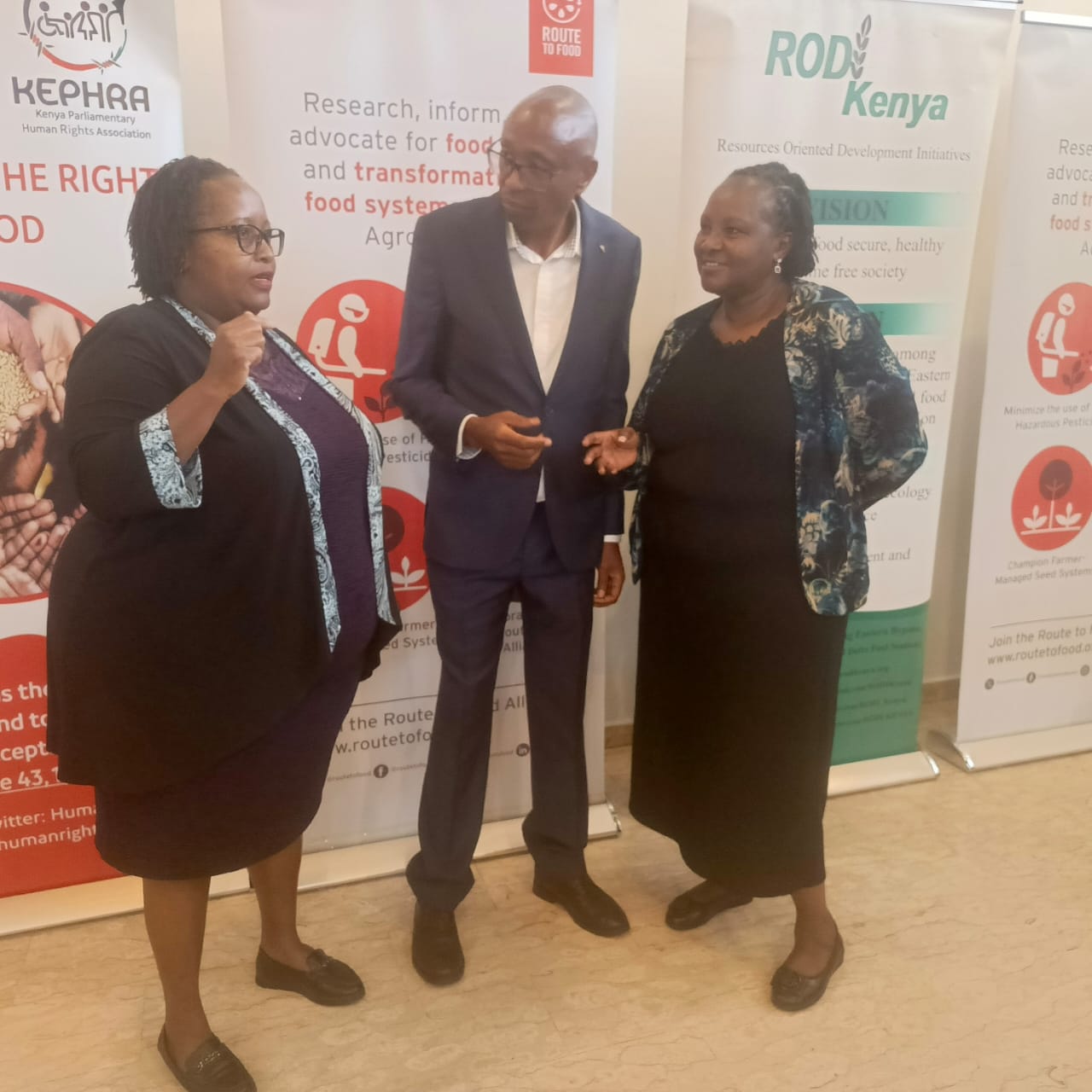
The government must publicly disclose the full list of brand pesticide products recently banned from the Kenyan market, say farmers, consumers, environmentalists and civil society groups.
The groups are calling on the Pests Control Products Board (PCPB) to release the names of the products containing hazardous ingredients.
While they praised the official ban on 50 substances, the groups emphasised the need for transparency, swift and effective implementation and the promotion of safer pest-control alternatives for a toxic-free food system.
On May 7, Agriculture Cabinet Secretary Mutahi Kagwe announced the ban on more than 50 harmful pesticide, fungicide and herbicide products.
Now, civil society organisations, led by the Route to Food Initiative (RTFI), have demanded the banned products list must be made public.
The list should include highly hazardous and widely used active ingredients, long identified, for regulatory action.
These ingredients include fungicide mancozeb, herbicides paraquat and glyphosate, fungicide carbendazim and several synthetic pyrethroids such as insecticides lambda-cyhalothrin cypermethrin and deltamethrin.
“These pesticides are extensively applied across Kenya's staple and export-oriented crops and have repeatedly been documented to pose significant acute and chronic health and environmental risks,” the civil society groups said in a joint statement.
Other civil society organisations backing the demand include the Biodiversity and Biosafety Association of Kenya (BIBA Kenya), Kenya Organic Agriculture Network (Koan), Consumer Grassroots Association (CGA), Resources Oriented Development Initiatives (Rodi), Community Organisation and Training for Risk Reduction (COTTR), Kenya Parliamentary Human Rights Association (Kephra) and the Centre for Environment Justice and Development (CEJAD).
Ann Maina, the national coordinator at BIBA Kenya, welcomed the ban and highlighted the recent policy shift towards agroecology.
"We are happy the Ministry of Agriculture passed the National Agroecology Strategy in November 2024. Agroecology promotes a transition to sustainable production methods with the gradual withdrawal of highly hazardous pesticides and synthetic fertilisers,” she said.
“We call on the government to support the production of biofertilisers and biopesticides through the input subsidy programme.”
An effectively implemented ban would mark a decisive step towards safeguarding human health, biodiversity and Kenya's ecological integrity.
It also would align with global best practices, as outlined in the FAO/WHO International Code of Conduct on Pesticide Management.
The group singled out the Business Laws (Amendment) Act, 2024, particularly Section 12(2) of the Standards Act (Cap 496), which addresses double standards in chemical regulation.
The clause prohibits the importation and use of substances banned or severely restricted in exporting countries. Kenya uses some pesticide ingredients banned by the European Union, for example.
In April 2025, the National Assembly's Committee on Implementation revived parliamentary oversight of pesticide regulation, emphasising problematic delays in acting on a 2019 petition to withdraw hazardous pesticides, herbicides and fungicides.
The committee’s findings pointed to deep regulatory weaknesses and emphasised the urgent need to prioritise public health and environmental sustainability over corporate interests.
Eustaus Kiarie, executive director of Koan, expressed concern that some products flagged for withdrawal are still in circulation.
“The continued presence and sale of these hazardous products undermines public health, environmental safety, and trust in regulatory enforcement. Past withdrawal deadlines must be respected to maintain regulatory integrity,” Kiarie said.
“For years, civil society, researchers, farmers' organisations, and public health advocates have highlighted the acute and chronic risks posed by highly hazardous pesticides to farmers, consumers, pollinators and aquatic life,” he said.
They urged the Ministry of Agriculture to integrate lessons learnt from previous reviews by the Pest Control Products Board and to align regulatory reforms with international standards, including those set by the FAO, WHO, EU regulations, and CODEX Alimentarius, which is a food standards safety body.
Esther Bett, executive director of Rodi, emphasised the need for science-based regulation.
“PCPB should prioritise active ingredients with the highest risk profile. Risk assessments should be based on international benchmarks and local exposure data. The banned substances must have proven adverse effects on human health and biodiversity,” she said.
To strengthen Kenya’s pesticide regulatory framework, the group proposed the establishment of an Independent Expert Advisory Panel of toxicologists, ecotoxicologists, agronomists, public health experts, farmer representatives and civil society leaders.
“This panel would provide evidence-based, conflict-free recommendations to PCPB or its future successor authority,” the groups said.
Additional recommendations include transparent and inclusive public participation processes, development of regulations to enforce an anti-double standards clause (allowing the use of pesticides that are banned or restricted in developed countries in developing nations, where regulations may be weaker), support for safer pest management alternatives and enhanced institutional capacity and budgetary support for PCPB.

![[PHOTOS] Ruto inspects his Naivasha farm](/_next/image?url=https%3A%2F%2Fcdn.radioafrica.digital%2Fimage%2F2025%2F06%2F72a14e8a-a040-48e1-87b3-597dbca6d7c6.jpeg&w=3840&q=100)









